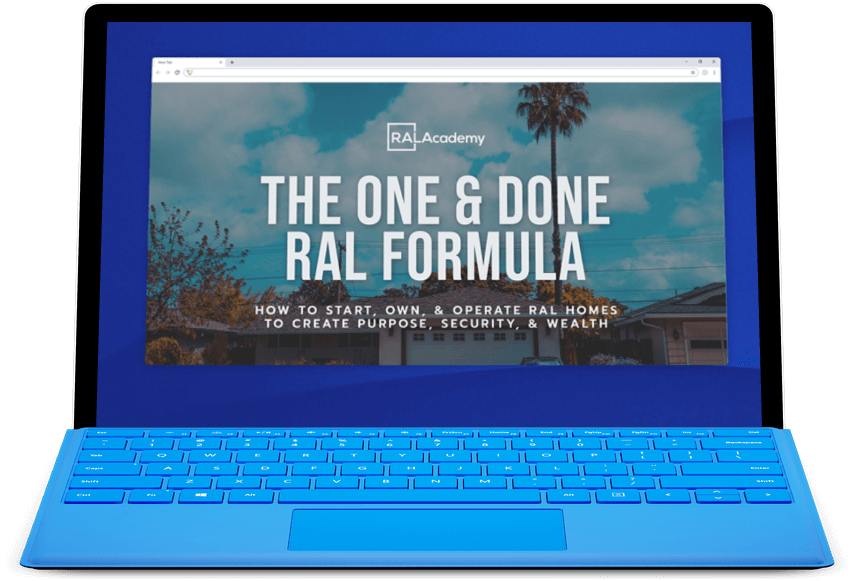In a fast-growing residential assisted living industry, owners and operators have the challenge of standing out as the best option for senior care.
The basics of assisted living are about choices.
What exactly is an assisted living facility and why should a senior consider moving into one?
Assisted living care helps with activities of daily living, medication management, meal preparation, and more. Currently, there are 30,000 assisted living facilities that house nearly 1.2 million individuals across America.
The average resident is 80 years old, with an annual income of approximately $30,000.
Residents typically live about 2-3 years in assisted living homes.
Your Residents Have Rights
Residential assisted living homes allow individuals to remain independent as long as possible. Generally, residents’ rights in assisted living facilities include:
- Being treated with dignity and respect
- Not to be neglected or abused
- Freedom of religious practices or the right to abstain from them
- Freedom to interact with who they want
- Access to evaluations of medical needs and health-related services
- Control over personal finances
- Representation in residential councils
Most residential assisted living homes allow residents to continue using tobacco and consuming alcohol. They are seldom allowed to have pets because they are unable to fully care for themselves, which renders them unable to care for pets.
Living Arrangements And Services
Bedrooms in residential assisted living homes are usually furnished. The type of bedrooms varies from place to place.
Residential assisted living homes differ state to state, but overall services offered can include:
- Assistance with bathing, dressing, eating, using the restroom, etc.
- Meal prep
- Educational activities and exercises
- Emergency call systems placed in bedrooms and common areas
- Exercise activities
- Housekeeping and maintenance services
- Organized recreational activities
- Laundry services
- Social and religious gatherings
- Transportation arrangements
- Wellness programs
- 24-hour care
Assisted living homes also contract with home health agencies, supervised skilled nurses and hospice services.
Assisted living intake personnel evaluate each resident during orientation to determine which services they’ll need.
Your loved one should be reevaluated on a regular basis just in case modifications need to be made to the services they receive.
Residents should always have access to these evaluations. They should also be given a copy for their own personal records.
Fees And Payments
In general, residential assisted living homes include basic services in their standard cost. Unique services may require an additional fee.
Overall fees for a residential assisted living home tends to be generally lower than those of nursing homes.
The national average monthly fee for residential assisted living is approximately $3,650, but this can vary greatly depending on location.
There are a variety of different ways to pay for assisted living, the Residential Assisted Living Academy uses a specific model that focuses on private pay clients.
Visit www.RALAcademy.com to learn more about this blueprint of assisted living.
Quality Care
It’s important to learn about all the rules and regulations governing the RAL homes in which you are thinking about placing your loved ones.
Most states have no license regulations for assisted living.
Be sure to check the qualifications of the administrator, as well as the service providers, for the assisted living home you choose.
When evaluating the resident’s administrator, look for the following:
- An adequate education
- Experience in the field
- Ongoing training to meet residents’ health and social needs
- Management’s ability to meet and complete the required tasks
Finding The Right Place
If you’ve come across an assisted living facility that you feel you would be comfortable with, do additional research about the home.
You can contact a financial planner, a hospital discharge planner, physicians, or maybe even a social worker, to inquire about the RAL homes in your area.
Be sure to stop by multiple facilities once you have gathered enough information about them.
Touring each home is important.
This way you know what different RAL homes have to offer, which will allow you to make a better decision based on your individual needs.
When visiting a facility, be sure to ask these questions.
- Ask for a detailed list of all the services offered at that facility.
- Ask exactly how the payment plan is set up.
- Are any of the services included in the base monthly plan?
- How often do you reevaluate residents?
- How do you go about identifying which care service is needed?
- Who will be conducting these evaluations?
- What is your policy on outside services?
- In the case that my loved one has to move, is there a deposit and is it refundable?
- If the needs of my loved ones increase or decrease, with fees fluctuate accordingly?
- How far in advance do you want to give notice of changes?
- Is there any reason that my loved ones’ fees can increase, even if their needs don’t change.
Getting Personal Care In A Home-like Atmosphere
Residential assisted living homes are known as home care alternatives. These places typically house small groups of adults over the age of 60.
Residential care homes are often private homes that are converted into small group homes.
Smaller RAL homes cost less, foster better one-on-one relationships, and lower the chances of fall risks.
Residential assisted living homes provide a higher level of care than large big-box facilities like nursing homes.
Fewer residents enable caregivers to better focus their attention on more personalized caregiving.
Each home is different. One may provide a high level of care while another sticks to the basics.
It is very important that you find out from each place exactly what services they provide, and which ones they do not.
What Do Residential Assisted Living Homes Typically Offer?
- Either a single or a double room (not apartments)
- You may have to share a bathroom
- Housekeeping may be provided
- Meal prep
- Personal care
Most RAL Homes Provide Supervision and Help with Activities of Daily Living:
- Bathing
- Getting dressed and grooming
- Help to be mobile
- Storing and distributing meds
- Using the restroom
Who Benefits Most From Ral Homes
1. People who like a less populated environment and dislike the institutional styled living situations:
- In residential assisted living homes, you are encouraged to live a normal life, as much as you are able. You can go shopping, have friends and family visit whenever they want, you can dine out and go in and out of the facility as you please.
- This is a great option for those who can’t quite live independently, but hate the idea of being put into a restrictive institution-like environment.
2. Seniors with Alzheimer’s or dementia should be placed into a memory care home.
- People with Alzheimer’s or dementia will usually do better living in a place with fewer people, which can reduce their anxiety and stress.
- Because it’s less crowded, this allows them to get better acquainted with staff who can get to know them and their specific needs more intimately.
How Ral Academy Can Help Your Business Succeed
So, why does any of this matter?
Recognizing an opportunity to invest in a business while also providing a much-needed service for some of the most vulnerable individuals in our society is a win-win.
Getting involved in residential assisted living is one of the best things you can do for yourself, your family and your community.
Come join one of the fastest-growing industries in the nation. Every great journey begins with one single step.
Residential Assisted Living Academy is a great resource to guide and support your start on this journey.
Visit: www.RALAcademy.com for additional information and registration. Take your first step today.




